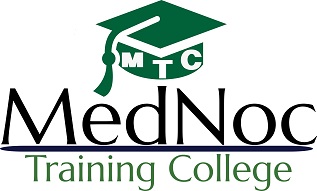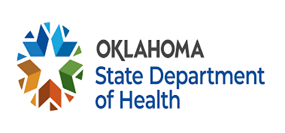Certified Nurse Aide (CNA) & Home Health Aide (CHHA) Deeming Combo
Program Description:
The Long Term Care Nurse Aide and Home Health Aide (CHHA) Deeming Combo, also known as the Certified Nurse Aide (CNA) & Home Health Aide, or CNA and HHA Deeming, is a comprehensive 93-clock-hour program approved by the Oklahoma State Department of Health Nurse Aide Registry. It comprises 77 clock hours dedicated to Long-Term Care (LTC) training and 16 hours focused on Home Health Aide (HHA) training. Led by licensed nurses, this program is designed for students who are not already certified nurse aides. To complete the CNA and HHA Deeming Program, students must first complete the 77 clock hours of LTC (CNA) training, followed by the 16 clock hours of HHA training, before taking the State Competency Examination.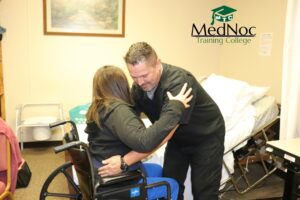
The CNA/HHA Deeming course emphasizes training students in the knowledge, clinical skills, and competencies required to pass the Oklahoma certification examination and become a Long-Term Nurse aide. Students learn to perform the duties and responsibilities expected of a certified nurse aide and home health aide, gaining both theoretical knowledge and practical clinical skills. The Home Health Aide Deeming course aims to equip individuals with the necessary knowledge, skills, and compassion to provide quality care and support to patients in their homes. This training prepares graduates to assist patients in maintaining independence and dignity while receiving essential healthcare services.
Upon graduation from the MedNoc Training College CNA program, students receive a Certificate of Completion, a Training Completion Affirmation Form, and a Training Verification Form, indicating completion of both the CNA and HHA training as required by the state. After passing the CNA/HHA State certification examination, graduates are certified by the Oklahoma State Nurse Aide Registry as Certified Nurse Aides (CNA) and Home Health Aides (CHHA). They can pursue entry-level positions in various healthcare settings, including Long-Term Care facilities, Assisted Living facilities, Independent Living Homes, Group Homes, Hospice Care, Hospitals, Private Homes, Home Health Agencies, and Home Care services.
CNA/HHA Program Clock Hour Distribution:
| Breakdown | CNA | HHA Deeming | CNA/HHA Deeming | |
| 1 | Classroom | 37 | 16 | 53 |
| 2 | Skills Laboratory | 24 | 00 | 24 |
| 3 | Clinical Internship | 16 | 00 | 16 |
| Total Hours | 77 | 16 | 93 |
CNA/HHA Deeming Program Schedule Options:
| Program Schedule | Program Length |
Number of Weeks |
Class Days | Class Time | On Campus Skills Lab |
Clinical Days Facility |
Clinical Time |
|
CNA/HHA Deeming Weekday |
93 Clock Hrs |
3 Weeks |
Monday to Friday |
8:00 am to 4:00 pm |
2nd week Monday, Tuesday & Friday |
2nd Week Wednesday & Thursday |
6:45 am to 3:15 pm |
|
CNA/HHA Deeming Evening |
93 Clock Hrs |
5 Weeks |
Monday to Friday |
5:30 pm to 9:00 pm |
3rd Week |
4th Week Wednesday & Thursday |
6:45 am to 3:15 pm |
|
CNA/HHA Deeming Weekend |
93 Clock Hrs |
4 Weekends |
Sat & Sun |
8:00 am to 4:00 pm |
3rd & 4th Weekend |
4th Week Wednesday & Thursday |
6:45 am to 3:15 pm |
|
CNA/HHA Deeming Online Hybrid Flex (Self-Paced) |
93 Clock Hrs |
5 Weeks |
Online |
8:00 am to 11:59 pm |
4th Week Monday, Tuesday & Friday |
4th Week Wednesday & Thursday |
6:45 am to 3:15 pm |
Prerequisite:
- None
Admission Requirements:
- Complete the Student Application online or in person.
- Complete the Enrollment Agreement in person or electronically.
- Minimum age: 16 Years old.
- Education: Ability to read, write, and comprehend in English.
- Current Government-issued Photo ID: e.g., driver’s license, passport, military card, green card, work authorization card, or tribal card.
- Social Security Card or replacement letter from the SSN Administration’s office.
- A criminal background check (Can be done at School for a cost of $35.00).
- Tuberculin (TB) Skin Test (PPD Test). (Offered at MedNoc for a cost of $35.00).
- Current BLS Certification before attending clinical. (This can be done at School for a fee of $60.00).
***NOTE: Some clinical sites may require additional requirements such as drug screens, immunization records, flu shots during flu season, or wearing a mask at the clinical site. The school will inform you if any of these items are required on the day of enrollment.
CNA/HHA Deeming Program Learning Objectives:
The CNA/HHA Deeming training shall include, but is not limited to, each of the following subject areas:
- The Role of Nurse Aide
- Communication and Interpersonal Skills.
- Infection Control.
- Safety/Emergency Procedures, Including The Heimlich Maneuver.
- Promoting Residents’ Independence.
- Respecting Residents’ Rights.
- Basic Nursing Skills
- Taking and recording vital signs.
- Measuring and recording height and weight.
- Caring for the residents’ environment.
- Recognizing abnormal changes in body functioning and the importance of reporting such changes to a supervisor.
- Caring for residents when death is imminent.
- Personal Care Skills, Including.
- Bathing
- Grooming, including mouth care.
- Dressing
- Toileting
- Assisting with eating and hydration.
- Proper feeding techniques.
- Skin care.
- Transfers, positioning, and turning.
- Mental Health and Social Service Needs.
- Modifying the aide’s behavior in response to residents’ behavior.
- Awareness of developmental tasks associated with the aging process.
- How to respond to resident behavior.
- Allowing the resident to make personal choices, providing, and reinforcing other behavior consistent with the resident’s dignity.
- Using the resident’s family as a source of emotional support.
- Care Of Cognitively Impaired Residents.
- Techniques for addressing the unique needs and behaviors of individuals with dementia Alzheimer’s and others).
- Communicating with cognitively impaired residents.
- Understanding the behavior of cognitively impaired residents.
- Appropriate responses to the behavior of cognitively impaired residents.
- Methods of reducing the effects of cognitive impairments.
- Basic Restorative Services.
- Training the resident in self-care according to the resident’s abilities.
- Use of assistive devices in transferring, ambulation, eating, and dressing.
- Maintenance of range of motion.
- Proper turning and positioning in bed and chair.
- Bowel and bladder training.
- Care and use of prosthetic and orthotic devices.
- Residents’ Rights.
- Providing privacy and maintenance of confidentiality.
- Promoting the residents’ right to make personal choices to accommodate their needs.
- Giving assistance in resolving grievances and disputes.
- Providing needed assistance in getting to and participating in resident and family groups and other activities
- Maintaining care and security of residents’ personal possessions.
- Promoting the resident’s right to be free from abuse, mistreatment, and neglect and the need to report any instances of such treatment to appropriate facility staff.
- Avoiding the need for restraints in accordance with current professional standards.
- Home Health Aide Deeming.
- Communication skills.
- Observation, reporting, and documentation of client status and the care or services furnished.
- Taking and recording temperature, pulse, and respiration.
- Basic infection control procedures.
- Basic elements of body functioning and changes in body function that must be reported to the aide’s supervisor.
- Maintenance of a clean, safe, and healthy environment.
- Recognizing an emergency and necessary emergency procedures.
- The physical, emotional, and developmental needs of, and ways to work with, the populations served by the home care agency, including the need for respect for the client, and the client’s privacy and property.
- Appropriate and safe techniques in personal hygiene and grooming including but not limited to the following: bed bath, sponge, tub or shower bath, shampoo, sink, tub, or bed, nail and skin care, oral hygiene, and toileting and elimination.
- Safe transfer techniques and ambulation.
- Normal range of motion and positioning.
- Adequate nutrition and fluid intake.
- Any other task that the home care agency may choose to have the home care aide perform.
Competency Examination Information:
MedNoc Training College is a Test Site for American Universities & Colleges Consultant LLC dba Somanoc Testing & Assessment. MedNoc Training College uses Somanoc Testing & Assessment to administer the CNA and CNA/HHA Deeming Competency Examination for Oklahoma certification. To register for your exam, visit www.somanoc.com. To familiarize yourself with the Somanoc’s testing policies, procedures, and exam registration process, visit the Somanoc’s website and read The Candidate Handbook.
Somanoc Testing & Assessment Exam Details for CNA and CNA/HHA Deeming.
Students have THREE (3) attempts to take and pass both the Knowledge and the Skills components of the CNA or the CNA/HHA Deeming state exam. If the candidate fails to pass both components (Knowledge & Skills), they shall be required only to retake the exam component they failed. However, if the candidate fails after their third attempt and ends up retraining, they will be required to start testing attempts afresh by taking both the knowledge and skills exam. Failure to pass after the third attempt requires students to retake the Course and submit new payments for training costs and state exams. For each exam attempt, the Student must make a payment.
| EXAM Component | Number of Items | Exam Structure | Exam Time | Pass Mark percentage | Exam Format | |
|
1 |
Knowledge Exam |
75 Multiple-choice Questions |
§ Randomized Questions |
90 minutes |
70% |
§ Computer-Based Test § Paper-Based Test § Oral-Based Test. |
|
2 |
Skills Exam |
6 Skills. | § Randomized Skills Packets Exam | 45 minutes | 80 % |
§ Read Scenario Based Test § Nurse Aide Clinical Skills demonstration |
LTC (CNA) & HHA Certification Renewal Process:
The Long-Term Care Nurse Aide (LTCNA) certification must be renewed every two years from the original date of issue. To renew the CNA certification, you must submit:
- Fill out and submit the Renewal Application ODH Form 717 to the Oklahoma Nurse Aide Registry.
- No renewal fee for LTC (CNA).
- Ten ($10) HHA renewal fee.
- Employment Verification – Must submit proof of 8 hours of paid work in nursing or nursing-related services during the 24-month certification time frame. Acceptable proof may include: pay stub, W-2, or a signed letter from the Administrator showing attesting that you have worked for pay providing nursing aide-related services for at least 8 hours within the last 24 months.
HHA Certification Renewal Process:
| OKLAHOMA NURSE AIDE REGISTRY | |
| Mailing Address (for applications): Oklahoma State Department of Health Nurse Aide Registry P.O. Box 268816 Oklahoma City, OK 73126-8816 |
Physical Address (requires appointment): Oklahoma State Department of Health 123 Robert S. Kerr Ave. Oklahoma City, OK Phone: (405) 426-8150 Fax*: (405) 900-7572 Email*: NAR@health.ok.gov |
| ****Applications without fees can also be emailed or faxed to the Nurse Aide and Nontechnical Service Workers Registry team. | |
CNA/HHA Deeming Program Tuition and Fees:
| Item | Traditional Program |
Online Hybrid Flex (Self-Paced) |
|
| 1. | Tuition | $ 720.00 | $ 590.00 |
| 2. | State Exam – First Attempt Only | $ 160.00 | $ 160.00 |
| 3. | TB Skin Screen Test | $ 35.00 | $ 35.00 |
| 4. | Criminal Background Check | $ 35.00 | $ 35.00 |
| 5. | BLS Certification | $ 60.00 | $ 60.00 |
| 6. | Name Badge | $ 25.00 | $ 25.00 |
| 7. | Total Cost | $ 1,035.00 | $ 905.00 |
NOTE: Other additional costs include but are not limited to uniforms and textbooks. The uniform cost may vary from $40.00 to $ 70.00, and the textbook is $55.00. Uniforms and books are required.
NOTE: Other additional costs include but are not limited to uniforms and textbooks. The uniform cost may vary from $40.00 to $ 70.00, and the textbook is $55.00. Uniforms and books are required.
Approvals & Licensing State Agency
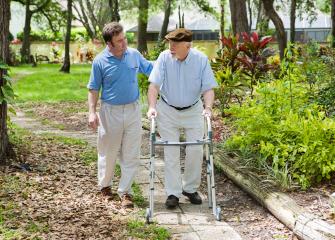
Home health aides help people with disabilities, chronic illness, or cognitive impairment with activities of daily living. They often help older adults who need assistance. In some states, home health aides may be able to give a client medication (Not in Oklahoma). Home Health Aide will check the client’s vital signs under the direction of a nurse or other healthcare practitioner.
Duties
Home health aides typically do the following:
- Assist clients in their daily personal tasks, such as bathing or dressing
- Provide basic health-related services according to a client’s needs, such as checking vital signs or administering prescribed medication at scheduled times
- Do light housekeeping such as laundry, washing dishes, and vacuuming in a client’s home
- Help to organize a client’s schedule and plan appointments
- Arrange transportation to doctors’ offices or for other kinds of outings
- Shop for groceries and prepare meals to meet a client’s dietary specifications
- Help to keep clients engaged in their social networks and communities
Home health aides, unlike personal care aides, typically work for certified home health or hospice agencies that receive government funding and therefore must comply with regulations. They work under the direct supervision of medical professionals, usually nurses. These aides keep records of services performed and of clients’ conditions and progress. They report changes in clients’ conditions to supervisors or case managers. Home health aides also work with therapists and other medical staff.
Depending on their clients’ needs, home health aides may provide some basic health-related services, such as checking a client’s pulse, temperature, and respiration rate. They may also help with simple prescribed exercises and provide medication reminders. Occasionally, give massages, care for skin, or help with braces and artificial limbs. With special training, experienced home health aides also may help to transport clients to doctor’s appointments.
HHA Work Environment
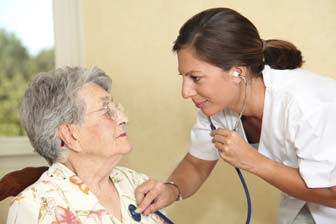
Most work in a client’s home, others work in small group homes or larger care communities. Some home health aides go to the same home every day or week for months or even years. Some visit four or five clients in the same day, while others work only with one client all day. They may work with other aides in shifts so that the client always has an aide. They help people in hospices and day services programs, and also help people with disabilities go to work and stay engaged in their communities.
